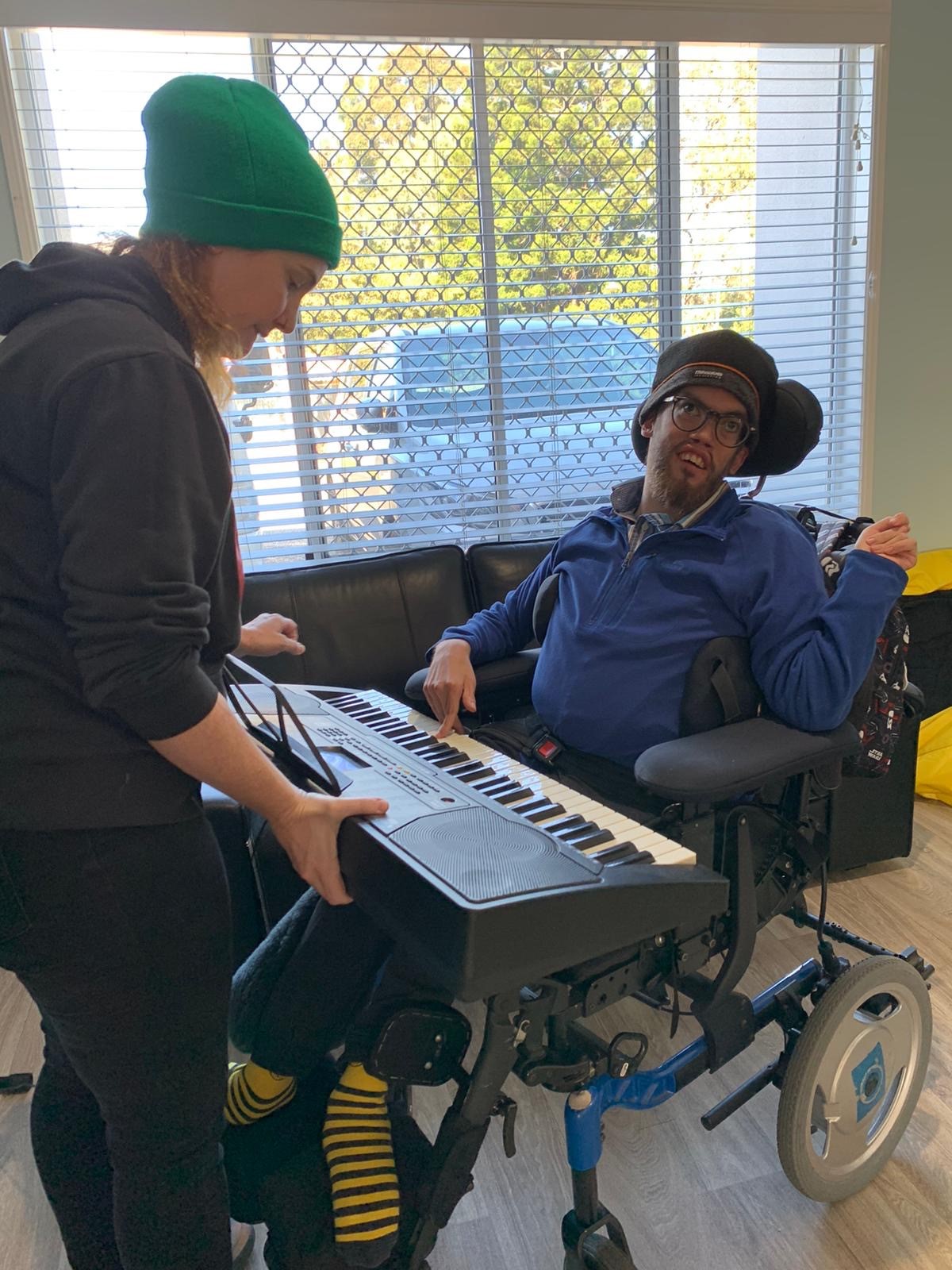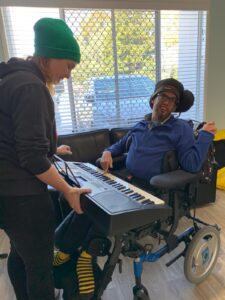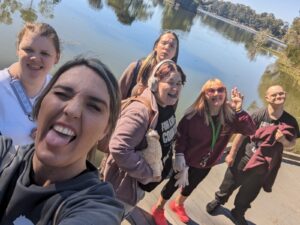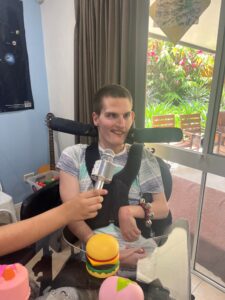How to Become an NDIS Disability Support Worker in Queensland
We know we're biased, but we think becoming a disability support worker in Queensland is one of the best careers around and we wanted to let people know how to get into this amazing career. Why we love it; it's flexible, there's variety, it's well paid, it teaches you incredible communication skills, teaches you how to see a person for who they are and not what they look like, and is rewarding when done right. Put simple, this career offers the opportunity to make a significant impact on the lives of people with disabilities, but it will give you so much more than that.
So how to become a disability support worker? This guide will provide a comprehensive pathway to entering this fulfilling profession, along with engaging tips for each step to help you succeed.
1. Understand the Role
What does a Disability Support Worker do?
A disability support worker assists people in their daily activities, helping them achieve greater independence and quality of life. This can include personal care, assistance with mobility, social support, employment support - basically anything that supports someone to work towards their goals.
Tip: Shadow a current disability support worker or volunteer at an organization to get firsthand experience. This will give you valuable insights into the day-to-day responsibilities and help you confirm if this career is the right fit for you.
2. Meet the Eligibility Requirements
Basic Requirements:
- Be 18 years or older.
- Hold a valid driver’s license.
- Have a National Police Check and an NDIS Worker Screening Check.
- Possess a First Aid and CPR certificate.
- Complete relevant vaccinations (e.g., flu, COVID-19).
Tip: Start your paperwork early. Background checks and vaccinations can take time to process, so the earlier you begin, the smoother your transition into the role will be. You can apply for an NDIS worker screening card as a volunteer before you're even employed. The cost for a working Worker Screening card is approximately $160, First Aid and CPR is about the same cost so make sure you budget for this before you start. Most places require this as mandatory before you can even get an interview.
3. Get Qualified
Educational Pathway:
There isn't technically a required qualification for this career, but the industry is heading more and more towards the minimum educational requirement for an NDIS disability support worker is a Certificate III in Individual Support (Disability). This course covers essential topics such as legal and ethical work practices, supporting independence, and communication skills.
- Course Providers in Queensland (we have no affiliation to any of these so please do your own research):
Tip: Consider a course that includes a work placement component. This hands-on experience is invaluable for building your skills and network within the industry, and try to start your placement as early as possible so you can start employment as soon as you finish your course.
4. Develop Key Skills
Essential Skills for Success:
- Communication: Ability to listen and speak effectively with staff, people and their families, and healthcare teams.
- Empathy: Understanding and considering the feelings of others.
- Patience: Ability to handle challenging situations calmly.
- Flexibility: Adaptability to different tasks and people's needs.
- Problem-Solving: Ability to think quickly and find solutions to unexpected issues.
Tip: Take advantage of online resources and workshops to further develop these skills. Platforms like NDIS Quality and Safeguards Commission offer training modules that can enhance your professional development.
5. Find a Job
Job Search Tips:
- Networking: Attend industry events like Expos where you can go and meet providers face-to-face, and join online groups or forums related to disability support. Networking can often lead to job opportunities and referrals.
- Job Portals: Use specialized job portals like Seek, Indeed, Ethical Jobs and NDIS Job to find openings.
- Local Providers: Reach out to local NDIS providers and express your interest in joining their team. Often, organizations will appreciate the initiative.
Tip: Tailor your resume and cover letter to highlight your relevant skills and experiences. Include examples of your hands-on experience and any specific training you’ve completed.
6. Build Your Career
Continuing Education:
- Further Qualifications: Consider pursuing additional certifications or a diploma in disability support, community services, or a related field.
- Specializations: Explore specialized areas such as mental health support, autism care, or working with children with disabilities.
Tip: Stay informed about industry trends and changes in NDIS policies. Regularly updating your knowledge will make you a more valuable and effective support worker.
7. Stay Passionate and Committed
Maintaining Motivation:
- Set Goals: Regularly set short-term and long-term goals for your career. This could include learning new skills, taking on more responsibilities, or aiming for a leadership role.
- Self-Care: Working as a support worker can be emotionally and physically demanding. Ensure you take time for self-care and maintain a healthy work-life balance.
Tip: Celebrate your successes, no matter how small. Recognizing your achievements can boost your confidence and motivation.
Conclusion
Becoming an NDIS disability support worker in Queensland is a fulfilling career path that offers the chance to make a real difference in the lives of others. By following these steps and staying committed to your personal and professional growth, you can build a successful and rewarding career in this field.
Side note - at YCS we believe being a disability support worker is a career and the people who work for us are professionals, so we have changed our internal wording of this role to reflect that. As such, you would be called a Direct Support Specialist.
Remember, the most important qualities you bring to this role are compassion, patience, and a willingness to learn and grow. Good luck on your journey to becoming an NDIS disability support worker!
If you have completed the above and are based on the Westside of Brisbane, drop us you resume by email to charlotte@ycsqld.com.au and we can see if we'd be a great fit!





